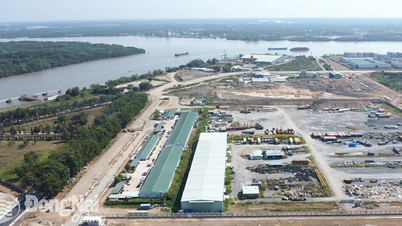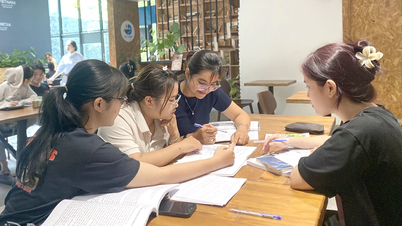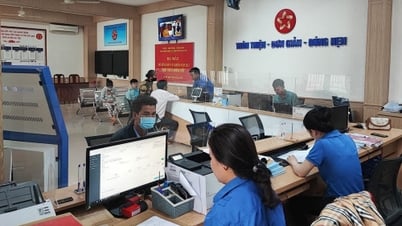On the morning of April 28, in Hanoi , Banking Times organized a workshop on “Bank collateral – Current issues of concern” with the participation of nearly 100 delegates including policy makers; international and domestic experts; representatives of prestigious domestic and foreign financial institutions…
In the context of Vietnam's economy growing strongly and integrating deeply with the region and the world, the Government and the Prime Minister have issued many policies to promote digital transformation in the banking sector, develop green economy, circular economy, including content related to digital assets and carbon credits.
On the banking sector side, implementing Directive No. 05/CT-TTg dated March 1, 2025 of Prime Minister , The State Bank of Vietnam, in coordination with the Ministry of Finance, is urgently and actively researching to propose a legal framework to manage and promote the development of digital assets and digital currencies. This is an important step to create a clear and transparent legal corridor for this field, while promoting innovation and ensuring a safe investment environment.
However, with the rapid development of the digital economy and the green transition, the question now is whether new types of assets such as digital assets and carbon credits can and will be accepted as collateral for loans at credit institutions in Vietnam?

Speaking at the workshop, Editor-in-Chief of Banking Times Le Thi Thuy Sen said that the workshop was organized with the desire to create an in-depth, multi-dimensional forum, connecting theory and practice, between Vietnam and international experience, between the legal framework and market demand. The three main objectives of the workshop are: Clarifying the role and significance of collateral in the new context, especially digital assets and carbon credits, thereby assessing the feasibility of implementing the application of these new types of assets in the Vietnamese banking system; sharing international experience in managing and handling collateral from countries around the world that have piloted or applied digital assets and carbon credits as collateral; suggesting solutions to guide the development of a legal framework for the use of non-traditional assets as collateral in accordance with international practices and practices, contributing to promoting safe and sustainable credit and supporting socio-economic development.
Dr. Le Thi Giang, Hanoi Law University, assessed that carbon credits are an important tool in reducing greenhouse gas emissions, but the establishment of secured transactions for carbon credits still has no specific regulations in Vietnamese law.

Sharing global experience in using carbon credits as bank collateral and recommendations for Vietnam, Dr. Vu Thi Van Anh, Senior Manager of ESG Division - KPMG Vietnam Tax and Consulting Limited Liability Company, said that in Thailand, carbon credits can be used as collateral in loans, especially for climate change adaptation investment projects, providing a way to measure and manage climate-related risks.
In the European market, some EU member states (such as France) have classified EUAs (European Union Emissions Certificates) as transferable intangible assets, allowing them to be used as collateral or security in financial transactions. The European Central Bank (ECB) has implemented measures to reduce climate risks in its credit operations, including limiting the use of high-emission assets as collateral.
Source: https://baolangson.vn/xem-xet-tin-chi-carbon-lam-tai-san-bao-dam-5045484.html



































































































Comment (0)